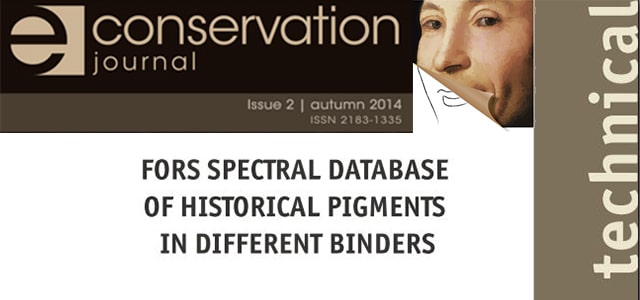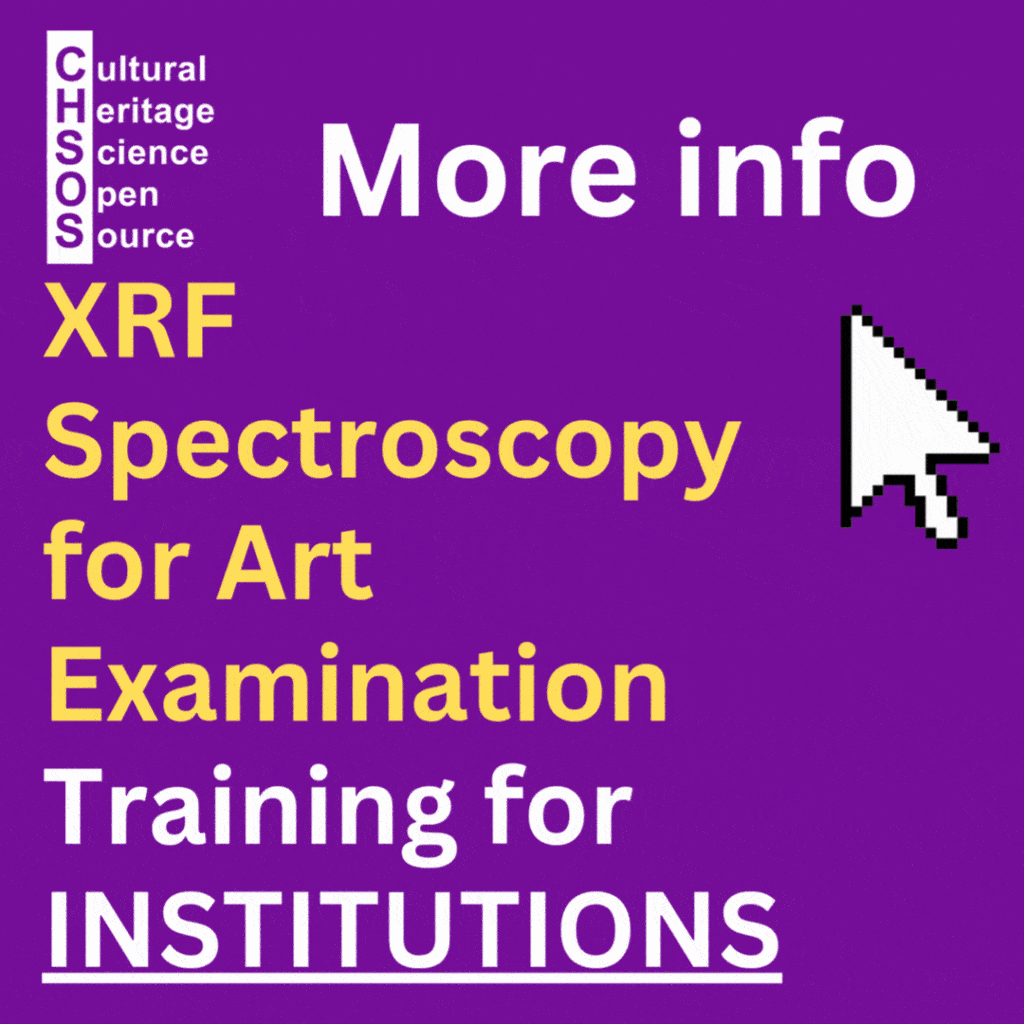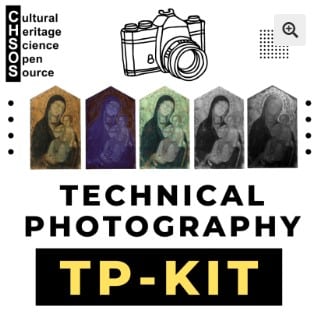
A new free online FORS spectra database of pigments is available. FORS (Fiber Optics Reflectance Spectroscopy) is a low-cost spectroscopy and it is used to identify pigments on art works. CHSOS tested an innovative miniaturized and affordable spectrometer and created the spectral database. This new paper “FORS spectral database of historical pigments in different binders” introduces the database of 54 historical pigments laid with 4 different binders, gum arabic, egg tempera, linseed oil, and fresco. The FORS spectra can be downloaded in CVS format from the e-conservation journal or from the CHSOS website. This database is of great help for pigment identification purposes since it provides for the first time, the additional possibility to freely download all spectroscopic data. This is likely to be a well-welcomed opportunity for all the other FORS researchers in art conservation.
The database aims to provide a knowledge base for the evaluation of the effect of different binders on the pigments’ spectral features. CHSOS confirmed the effectiveness of the FORS system used for the non‐invasive identification of pigments in different binders. This system is small, low cost and the acquisition is rapid. It makes it well adapted to the specific needs of professional art examination in the field. This new database is a very useful and helpful addition to the already created databases of reflectance spectra existing online. Researchers working in the field of Cultural Heritage Science can significantly benefit from the added possibility to freely download all spectroscopic data that is provided for the first time, and use it as a powerful tool for pigments identification purposes as well as to evaluate how different binders influence the spectral features of the pigments.
I need to thanks GHT Photonics srl, the Italian representative of Ocean Optics, which kindly lent to CHSOS the FORS system.









Great job Antonino!
It’s not so easy to find FORS spectra AND the binders together.
Thanks again.
Davide